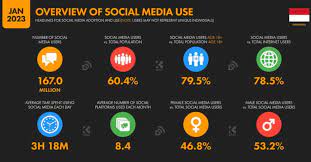In today’s rapidly evolving economic landscape, the indonesia media online essence of business has transformed significantly. From the rise of digital technologies to the shift towards a more globalized market, businesses must navigate a complex web of challenges and opportunities to achieve success. This article delves into the fundamental aspects of modern business, exploring key strategies that can help companies thrive in a competitive environment.
Understanding the Modern Business Environment
The modern business environment is characterized by several defining features:
- Globalization: Businesses are no longer confined by geographical boundaries. The internet and advancements in logistics have made it possible for even small enterprises to reach international markets. This globalization presents both opportunities for growth and challenges such as cultural differences and international regulations.
- Technological Advancements: The rise of the digital age has revolutionized the way businesses operate. Technologies such as artificial intelligence (AI), blockchain, and the Internet of Things (IoT) have created new business models and streamlined operations. Companies that leverage these technologies effectively can gain a significant competitive edge.
- Consumer Expectations: Modern consumers are more informed and have higher expectations than ever before. They demand transparency, personalized experiences, and ethical practices. Businesses must adapt to these expectations to build trust and loyalty.
- Sustainability: Environmental and social responsibility are no longer optional. Consumers and investors alike are increasingly prioritizing sustainability. Businesses that incorporate sustainable practices into their operations can enhance their brand image and attract a loyal customer base.
Key Strategies for Business Success
To succeed in today’s competitive market, businesses must adopt a multifaceted approach. Here are some key strategies that can drive success:
1. Embracing Innovation
Innovation is the lifeblood of modern business. Companies must continually seek new ways to improve their products, services, and processes. This involves investing in research and development, encouraging a culture of creativity, and staying abreast of industry trends. Innovative businesses are better equipped to meet changing consumer demands and stay ahead of competitors.
2. Building a Strong Brand
A strong brand is essential for standing out in a crowded market. Businesses should focus on creating a compelling brand story, developing a consistent visual identity, and delivering on their brand promise. Effective branding builds trust, fosters customer loyalty, and differentiates a company from its competitors.
3. Prioritizing Customer Experience
Customer experience (CX) is a critical differentiator in modern business. Companies that prioritize CX by providing exceptional service, personalizing interactions, and addressing customer feedback can build long-lasting relationships. Utilizing data analytics to understand customer behavior and preferences can help businesses tailor their offerings to meet specific needs.
4. Leveraging Data and Analytics
Data is a valuable asset that can provide insights into market trends, customer preferences, and operational efficiency. Businesses should invest in data analytics tools to gather, analyze, and act on data-driven insights. This approach enables informed decision-making and helps identify opportunities for growth and improvement.
5. Fostering a Positive Organizational Culture
A positive organizational culture attracts and retains top talent, drives employee engagement, and enhances overall productivity. Businesses should focus on creating an inclusive, supportive, and collaborative work environment. Encouraging open communication, providing opportunities for professional development, and recognizing employee contributions are key components of a strong organizational culture.
6. Adapting to Market Changes
The business landscape is constantly evolving, and companies must be agile to stay relevant. This requires a proactive approach to market research, a willingness to pivot strategies when necessary, and the ability to anticipate and respond to emerging trends. Businesses that can adapt quickly to changes are better positioned to seize new opportunities and mitigate risks.
Conclusion
In the dynamic world of modern business, success requires a combination of innovation, strategic planning, and adaptability. By embracing technological advancements, prioritizing customer experience, and fostering a positive organizational culture, businesses can navigate the complexities of the market and achieve sustainable growth. Ultimately, those that stay ahead of trends, leverage data effectively, and remain committed to their core values will thrive in the competitive business landscape.
The key to enduring success lies in the ability to evolve continuously, stay customer-focused, and maintain a forward-thinking mindset. As businesses strive to meet the demands of the modern world, these strategies will serve as a foundation for achieving excellence and driving long-term success.

